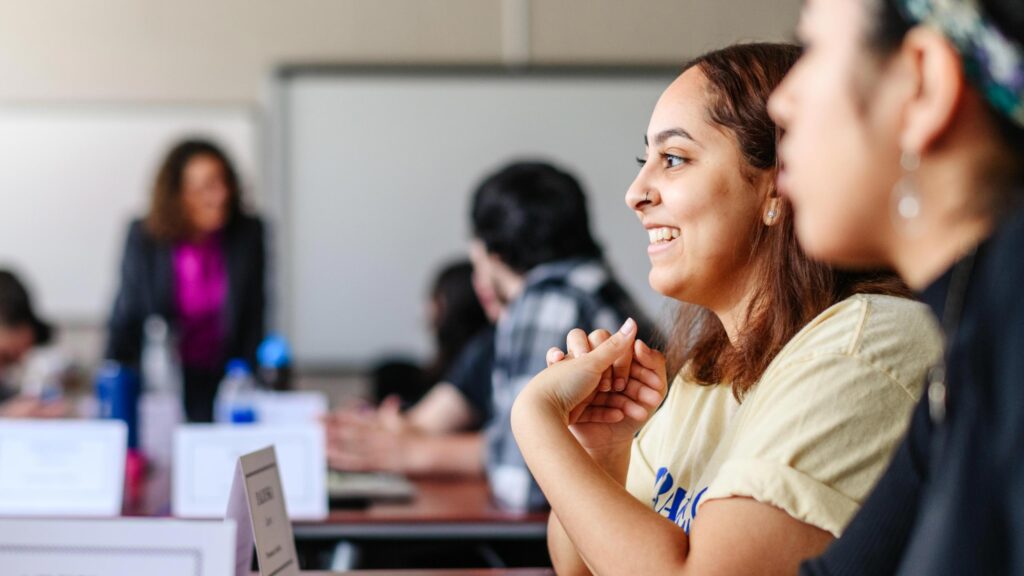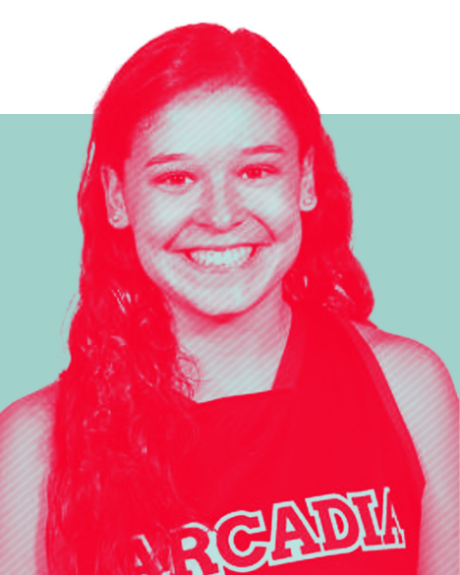
- Degree Level
- Undergraduate
- Degrees Offered
- Bachelor of Arts
- school/college
- School of Education
Bachelor’s Degree in Education Studies
Study education as a formative experience, whether it takes place in families, popular culture, community programs, corporate environments, social media, or even schools. You will explore the creation and uses of knowledge in the organization of power, places, and programs. Arcadia’s Education Studies program will help you find perspectives on yourself and others with a distinctly Arcadian global perspective.
As an Education Studies major, you will:
- Prepare for a wide assortment of jobs in schools and afterschool programs, non-profit institutions, international development agencies, cultural institutions, and government work.
- Gain a foundation for advanced graduate work in education, sociology, anthropology, psychology, history, political science, or international studies.
- Have the opportunity to study abroad to explore global educational context, enhance your knowledge of the field of education through experiences abroad, and in some cases, develop your teaching skills through field experiences in schools.
- Select a concentration based on your interests to specialize your studies and complete a published capstone project.
Experiential Learning
Concentrations
Education Studies concentrations allow you to specialize in an area of education. You select a concentration, then complete a series of courses related to your concentration and a special 3-credit course to complete your capstone project, all with the guidance and supervision of a faculty advisor.
Education Policy
Focus on understanding how decisions that shape the focus, content, and institutional structures of education are made and how various stakeholder groups engage in this decision-making process.
Global and Comparative Education
Think critically about the similarities and differences between educational systems and approaches around the globe.
Children and Youth
Examine childhood and youth as socially constructed categories that are shaped by and that shape their social context.
Teaching and Learning
Learn a deep and expansive theoretical and practical perspective on what it means to teach and learn, exploring various conceptions of pedagogy and theories of learning.
Explore a Typical Course Path to Graduation
Featured Courses
Fairly Tales, Princesses, and Super Heroes: How Media Shape Children’s Gender and Sexuality
Elective Course
This course takes a cross-disciplinary look at how media shapes the views of gender and sexuality for children and youth, with a particular view to the implications for educators.
Rethinking Gender and Sexuality
Elective Course
How and where do people learn about gender and sexuality around the world?
Arts, Mathematics, Community & Learning
Elective Course
Juggling and Origami are studied as embodied performance and as mathematical arts, providing opportunities to explore relationships among modes of learning, community development, and interdisciplinarity.
Understanding Language Learning
Elective Course
Address the processes of language learning from a variety of disciplinary perspectives and engages students in an understanding of the structure and sound systems of English in relation to other languages and in relation to a variety of teaching/learning strategies.
Contemporary Politics of Knowledge
African American History courses, Queer Theory, CRT (Critical Race Theory), Trans and other non-binary teachers and students, etc.: What are these, really? Why are they flashpoints in contemporary politics? Why are some school boards removing all books from their classrooms? We will inform ourselves about the actual academic content of these newsworthy buzzwords and explore the complexity of their use in public rhetoric. We will also try to answer questions such as, “What knowledge is really important for people to learn?” “What could ‘age appropriate’ mean?” “What could make a book or a lesson ‘dangerous’, and, for whom?” Graded assignments include planning, carrying out, and reflecting on the success of educational actions that provoke or generate advocacy for specific audiences.
Public History
Public history is the history that belongs to the public—history that is seen, heard, read, and interpreted by popular audiences. In this course students will work with cultural institutions, National History Day (NHD) program, and/or public schools to help shape public history. Students will learn both historical and educational skills through field experiences, readings, class discussions, and projects that address the following questions: What is public history? How do educational institutions help shape the story of We the People? What narratives do young people have? Whereas some students' fieldwork will be mentoring a middle or high school student competing in National History Day (the science-fair of history), others' projects will be working on public history to be published on cultural institutions' websites, PhilaPlace, or National Constitution Center's The Constitution Happened Here. By supporting cultural institutions education departments and NHD, students contribute to the creation of new stories about our past to be shared with the public.





